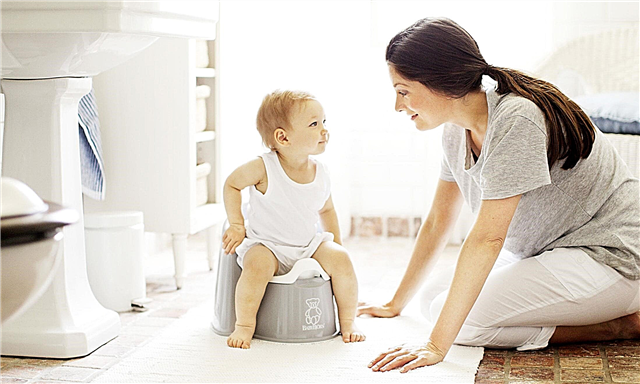What fears women experience when maternity leave ends. How to deal with anxiety, prepare your child, and return to work. Advice from experts and experienced mothers.
As the maternity leave date approaches, young mothers begin to be overcome by doubts and fears. Will I be able to work normally after such a long break, and how will the child perceive my absence, will he cope without me? What if I don't want to go to work? Is it normal not to want to go to work at all? We asked these questions to mothers on maternity leave and recruiting specialists, and compiled the most important tips for those who go to work after maternity leave.

Prepare the child
Most often, young mothers worry about how the child will react to their absence. And preparing the child for this event is the first thing to start with. Do not put off going to kindergarten until the very last moment. The adaptation period for children lasts several months, and it will be good if it ends before you go to work. Even if you do not plan to take your child to the garden, but want to leave him with his grandmother, you need to prepare in advance. Do not worry if during the first days or even weeks the baby will be capricious, become too emotional or sleep poorly - this is how signs of adaptation appear and this is absolutely normal (these are normal signs of serious changes in life). But if after three months the situation has not changed, it is worth showing the child to a neurologist or psychologist.
Comment of Maria Konovalova, mother of the weather:
“We need to talk to the child, show him how proud you are that he is already big and goes to kindergarten. Agree (and be sure to do) that every evening you will tell each other everything that happens during the day and consult in difficult situations. And you will spend the weekend together. "
Do not try to trick the kid and leave while he is busy with something. In this way, you deprive your child of the opportunity to say goodbye to you. It is better to turn the farewell into a ritual, repeat it every day, thereby ensuring emotional contact before parting.
Organize everyday life
The most common fear after worrying about a child is the fear of a large number of new responsibilities. Mom understands very well that even after she starts working, household chores will not disappear anywhere: you will have to allocate time for cleaning, cooking, washing and other daily chores. Most likely, housework will take up all her free time. And for sure she will no longer be as good a housewife as before, and therefore, she will begin to feel guilt and shame.

Experienced mother Maria Konovalova advises to immediately think over and solve all everyday difficulties and be sure to find helpers. Relatives, neighbors, nannies, as well as cleaning companies and laundries can relieve mom of some of the household chores. When all the disturbing moments have been carefully thought out, the worries will disappear.
Prepare yourself
Career development experts confirm that moms do lose some skills during maternity leave. The working pace and dynamics are reduced, professional skills are weakened to perform even the simplest tasks more time is spent. But the decree itself is not to blame. Any employee can face similar difficulties after a long break from work.
Comment of Yulia Novikova, CEO of the Career Development Center:
“If you plan to return to work, you need to follow the news in your industry and educate yourself. Now it is quite affordable: you can take online courses and trainings, participate in webinars, listen to lectures and read professional articles. This will help you keep your "working shape", keep abreast of all the news and keep up with your colleagues professionally. "
Some executives practice a soft adaptation program for women who left the decree. They are offered remote work with a visit to the office for several hours a day or several times a week. Don't be afraid and try to suggest this option to your employer.
Find a job you like
If you have nowhere to go after the decree, then start your job search by writing a competent resume. It should reflect your knowledge, skills, values and interests. The employer should find out what your advantage over other jobseekers is and why you are ideal for the position.
Comment of Yulia Novikova, CEO of the Career Development Center:
“The main concern of employers is the constant“ begging ”and hospitalization for young mothers. Reassure your boss, explain that you have a reliable assistant, in the person of a nanny or grandmother. Also, employers often fear that after the birth of a child, a woman will no longer want to go on business trips and stay late at work during rush jobs. Talk about the knowledge that you received in the decree, suggest ideas. Employers need a spark in their eyes, not the hackneyed phrases “I can't stay at home anymore” and “I just need a job.”
If you want to open your own business, then start with its presentation to family and friends. They will initially be your support and support - investors of a kind. And so they need to "sell" their idea.
Mom job
Career development on maternity leave is now a fashion trend. But no one forces you to follow it. The desire to remain a housewife is perfectly normal. If your family's financial situation is stable, then discuss this option with your husband. But what if the money is sorely lacking, but you don't want to go to work? In such a situation, you can use an alternative solution to the problem.
Comment by Anna Polyakova, owner of a recruiting agency:
“You can try your hand at remote work - to carry out projects at a convenient time for you and improve your professional skills. For example, the bulk of the employees in our recruiting agency are mothers with children who work at home. They grow professionally and at the same time determine the scope of work themselves, select recruiting projects and build their own schedule for their implementation. "
It is important to decide that you cannot do without going to work, kindergarten or nanny. If a mother goes to work without much desire, “through I can’t and I don’t want to,” then the children feel it. In such situations, they may manifest psychosomatics (body protest): frequent illnesses, nausea in the morning and diarrhea. Thus, the child unconsciously helps the mother not to go to work and stay at home.
Solving problems as they arise
Many mothers experience extreme stress when it comes time to go to work after maternity leave. We cheat ourselves, draw in our imagination terrible pictures where a child suffers in kindergarten, and we work very badly. But in reality, everything can be completely different.
Worried about your child in kindergarten? Read reviews about the chosen kindergarten and the teachers in your group, think about alternative options, for example, a nanny or a private kindergarten. Afraid you lost all your skills on maternity leave? Take online courses, stay up to date in your industry, interact more with peers and discuss current affairs. Worried about not being able to find a job? Submit your resume and apply for the maximum number of vacancies. Define a "trial period" for yourself and just try to withstand it. And do not forget, no matter how your professional career develops, you already have a "mother's position" that no one will ever take away.
- 7 main reasons not to be afraid to go to work after maternity leave
- Going to work after maternity leave: how to do it so as not to injure the child
- From the decree to work: your 8 advantages over other jobseekers



